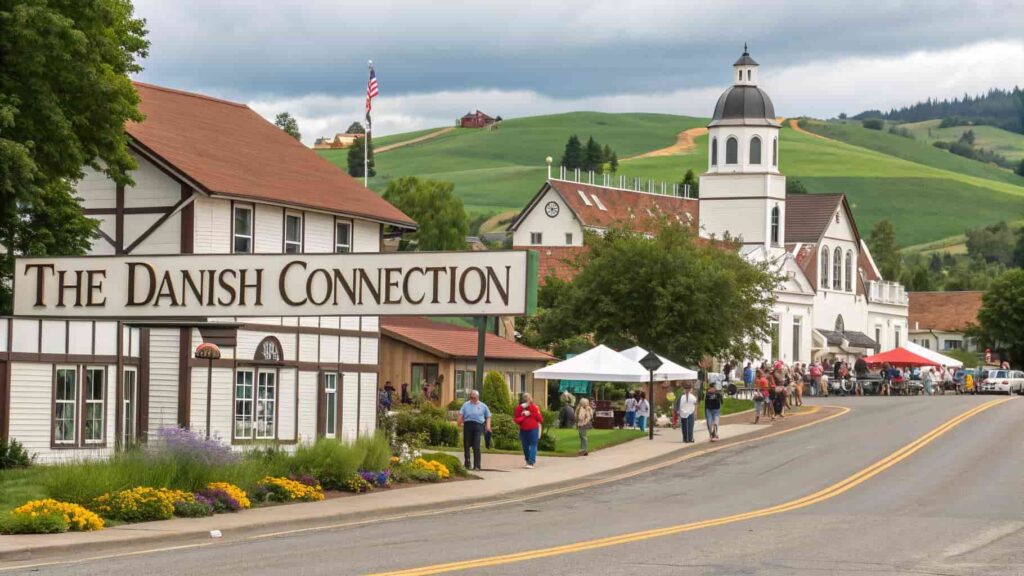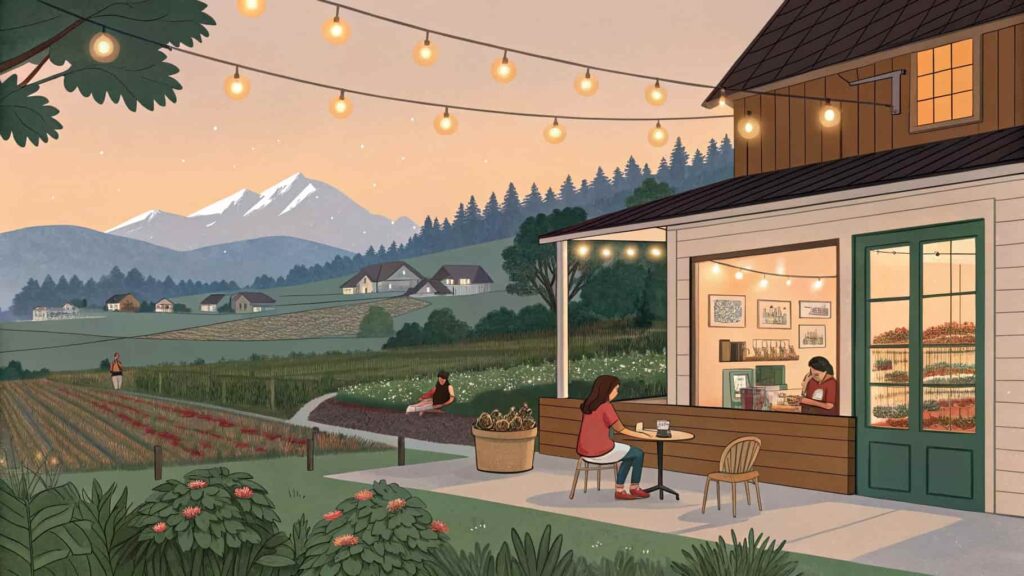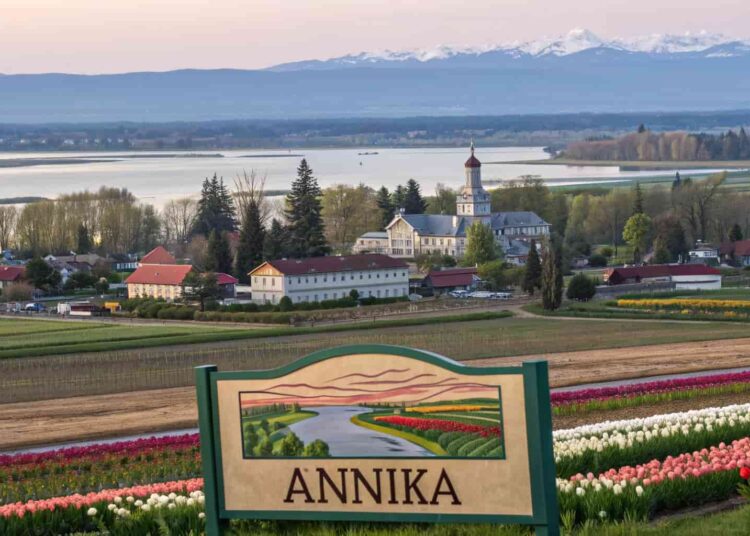Mount Vernon, Washington, a city nestled in the heart of the Skagit Valley, is more than just a beautiful town surrounded by tulip fields and river landscapes. It is a community rich with diverse cultural backgrounds, one of which is the Danish heritage. Among the names that shine in this cultural blend is Annika, a name that carries deep Scandinavian roots and has become increasingly popular in the Pacific Northwest, especially in communities like Mount Vernon.
This article takes a closer look at the phrase “Annika Mount Vernon WA Danish”—examining the personal, cultural, and historical context of Danish identity in Mount Vernon, and how names like Annika reflect a broader story of migration, tradition, and belonging.
Who Is Annika? Understanding the Name’s Danish Origin
The name Annika is a feminine given name of Scandinavian origin, particularly Swedish and Danish. It is a diminutive form of Anna, meaning “grace” or “favor.” While it is used across Europe, it has a special charm and popularity among Danish and Swedish communities, both historically and in modern times.
In Denmark, names like Annika represent elegance, strength, and tradition. It’s no surprise that many families who emigrated from Denmark to the U.S. brought names like Annika with them, as a way to preserve their cultural identity across generations.
The Danish Connection in Mount Vernon, WA

A Legacy of Scandinavian Immigration
Mount Vernon, WA, has long been a hub for Scandinavian immigrants. In the late 19th and early 20th centuries, Danish, Norwegian, and Swedish settlers were drawn to the fertile farmland and temperate climate of the Skagit Valley. The town’s name itself evokes imagery of green hills and European villages, which made it a perfect fit for Scandinavian families seeking a new life in America.
The Danish immigrants contributed to the development of Mount Vernon in various ways:
- Agriculture: Danish farmers played a vital role in shaping the agricultural economy of the region, particularly in dairy and tulip farming.
- Architecture: Many early buildings and churches in Mount Vernon show signs of Scandinavian architectural influence.
- Culture: Danish festivals, foods, and family traditions became woven into the town’s identity.
Today, this legacy is still alive. The mention of “Annika Mount Vernon WA Danish” may refer to a person who is either a descendant of Danish immigrants or someone embodying this cultural legacy in a modern context—such as through community involvement, local events, or heritage preservation.
Annika: A Name That Bridges Generations
Embracing a Danish-American Identity
In towns like Mount Vernon, names are more than just identifiers—they are connective threads between the past and present. When someone named Annika grows up in Mount Vernon with Danish roots, she’s likely carrying generations of stories, traditions, and values.
Many Danish-American families continue to observe:
- Jul (Danish Christmas) traditions, including baking æbleskiver (Danish pancake balls) and decorating with hearts and candles.
- Naming rituals, where children are named after grandparents or great-grandparents, keeping ancestral connections alive.
- Folk traditions, such as Scandinavian dancing, folk music, and storytelling.
Annika, as a name, beautifully preserves this heritage.
Also read: PrizeChecker.com
Danish Cultural Institutions and Events in Mount Vernon
To understand the “Annika Mount Vernon WA Danish” connection more deeply, it’s helpful to look at local Danish and Scandinavian cultural institutions that nurture heritage and community.
1. The Skagit Valley’s Scandinavian Festivals
Mount Vernon and nearby communities often host events celebrating Scandinavian heritage. These include:
- Scandinavian Midsummer Festival: Featuring folk dancing, traditional music, and maypole raising.
- Tulip Festival: While not strictly Danish, the tulip fields often attract cultural exhibitions, including Danish food and craft booths.
- Danish Brotherhood of America Events: Local lodges often host community dinners and cultural evenings celebrating Danish holidays.
2. Lutheran Churches with Scandinavian Roots
Many Danish immigrants were Lutheran and helped establish Lutheran churches that remain active in the community. These churches often maintain cultural traditions and welcome descendants of original immigrant families, including those like Annika.
Danish Values in the Pacific Northwest Lifestyle
The Pacific Northwest lifestyle often mirrors traditional Danish values, including:

- Hygge (coziness and contentment): This Danish concept fits perfectly with life in Mount Vernon, where coffee shops, quiet evenings, and community spaces foster a sense of warmth and belonging.
- Sustainability: Denmark is known for its environmental consciousness, and Mount Vernon has embraced green living, organic farming, and eco-friendly practices.
- Equality and education: Danish culture values fairness and education, which align well with Mount Vernon’s public school and civic priorities.
An Annika growing up in Mount Vernon is likely to inherit and embrace these values—sometimes without even realizing their Danish origin.
Highlighting Local Figures: Could Annika Be a Community Voice?
There may be individuals in Mount Vernon named Annika who actively preserve Danish-American heritage through:
- Community leadership
- Local history projects
- Teaching Danish language or folklore
- Running a family-owned business inspired by Danish traditions (e.g., bakeries or gift shops)
Although no specific public figure named “Annika” may currently be widely recognized in Mount Vernon, the combination of this name, location, and heritage likely points to a broader group of Danish-American women who quietly shape their communities through small but meaningful acts of cultural preservation.
Danish Cuisine in Mount Vernon: A Cultural Bridge
Cuisine is a central part of any cultural identity. In the context of “Annika Mount Vernon WA Danish,” food becomes a living tradition.
Popular Danish Dishes Seen Locally or at Festivals
- Smørrebrød: Open-faced sandwiches with rye bread, pickled herring, meats, and garnishes.
- Frikadeller: Danish meatballs served with potatoes and gravy.
- Æbleskiver: Pancake balls often served during holiday events.
- Danish pastries: Known globally, but often made more traditionally at local Scandinavian markets or festivals.
Local bakeries, farmer’s markets, or family gatherings led by women like Annika help keep these traditions alive.
Also read:prostavive colibrim Review
The Importance of Heritage in a Modern American Context
For many second- or third-generation Danish-Americans in Mount Vernon, connecting with their heritage is a way to:
- Understand their identity
- Honor their ancestors
- Celebrate cultural uniqueness in a globalized world
Annika may represent a new generation of women who proudly say, “Yes, I’m from Mount Vernon, WA—and yes, I have Danish roots.”
Whether it’s through naming children, preserving recipes, telling stories, or celebrating holidays, the Danish legacy continues through everyday acts.
The Modern Relevance of the Danish-American Identity
In an era where people are increasingly interested in ancestry, genealogy, and DNA testing, the phrase “Annika Mount Vernon WA Danish” reflects:
- A search for roots
- A desire to reconnect with cultural identity
- A celebration of diversity in American towns
Online platforms like 23andMe or Ancestry.com have led many Mount Vernon residents to discover their Danish ancestry—which then sparks an interest in names, traditions, and culture.
Educational and Youth Programs Supporting Danish Culture
To ensure that Danish traditions continue, several youth and educational programs in Skagit County may incorporate:
- Scandinavian language studies
- Cultural exchange trips
- Genealogy clubs and storytelling sessions
Annika, whether a student, teacher, or community advocate, could easily play a role in these efforts.
Frequently Asked Questions
1. Is “Annika” a common name in Danish culture?
Yes, Annika is a traditional Scandinavian name, popular in Denmark, Sweden, and Norway. It means “grace” and has a long history of use.
2. How strong is the Danish presence in Mount Vernon, WA?
Mount Vernon has a strong Scandinavian heritage, including Danish roots. Many residents are descendants of early Danish immigrants who arrived in the late 1800s.
3. Are there Danish cultural events in Mount Vernon?
Yes, Mount Vernon and surrounding towns host events like Midsummer festivals, Scandinavian holiday markets, and community dinners celebrating Danish food and traditions.
4. What foods are associated with Danish culture in Mount Vernon?
Popular dishes include æbleskiver, frikadeller, smørrebrød, and Danish pastries—often served at festivals or made in local homes.
5. Does Mount Vernon have Danish churches?
Yes, several Lutheran churches in the area were originally founded by Danish or Scandinavian settlers and still celebrate related traditions today.
6. Can I learn Danish in Mount Vernon?
While full Danish language courses may be limited, local heritage centers, online resources, and Scandinavian clubs can help you get started.
7. What is “hygge,” and how does it relate to Mount Vernon?
Hygge is a Danish concept of cozy living, comfort, and well-being. Mount Vernon’s peaceful lifestyle and natural beauty make it a perfect environment to experience hygge.
8. Is the name Annika still popular today?
Yes, Annika continues to be a popular name across the U.S. and Scandinavia, often chosen for its elegance and cultural meaning.
9. Are there businesses in Mount Vernon that reflect Danish influence?
Yes, including family-run bakeries, farms, and craft stores that incorporate Danish design, cuisine, or traditions.
10. How can I explore my Danish roots if I live in Mount Vernon?
You can start with genealogy websites, visit local heritage centers, talk to older family members, or join Scandinavian cultural groups in the area.
Conclusion:
The phrase “Annika Mount Vernon WA Danish” captures a beautiful intersection of personal identity, cultural heritage, and community pride. Whether referring to a person or symbolizing the broader Danish-American presence in Mount Vernon, it reflects the lasting impact of Danish traditions, values, and names in the Pacific Northwest. From food and festivals to family history, this heritage continues to enrich the lives of those who carry it forward—quietly, proudly, and meaningfully.
Related post:
















